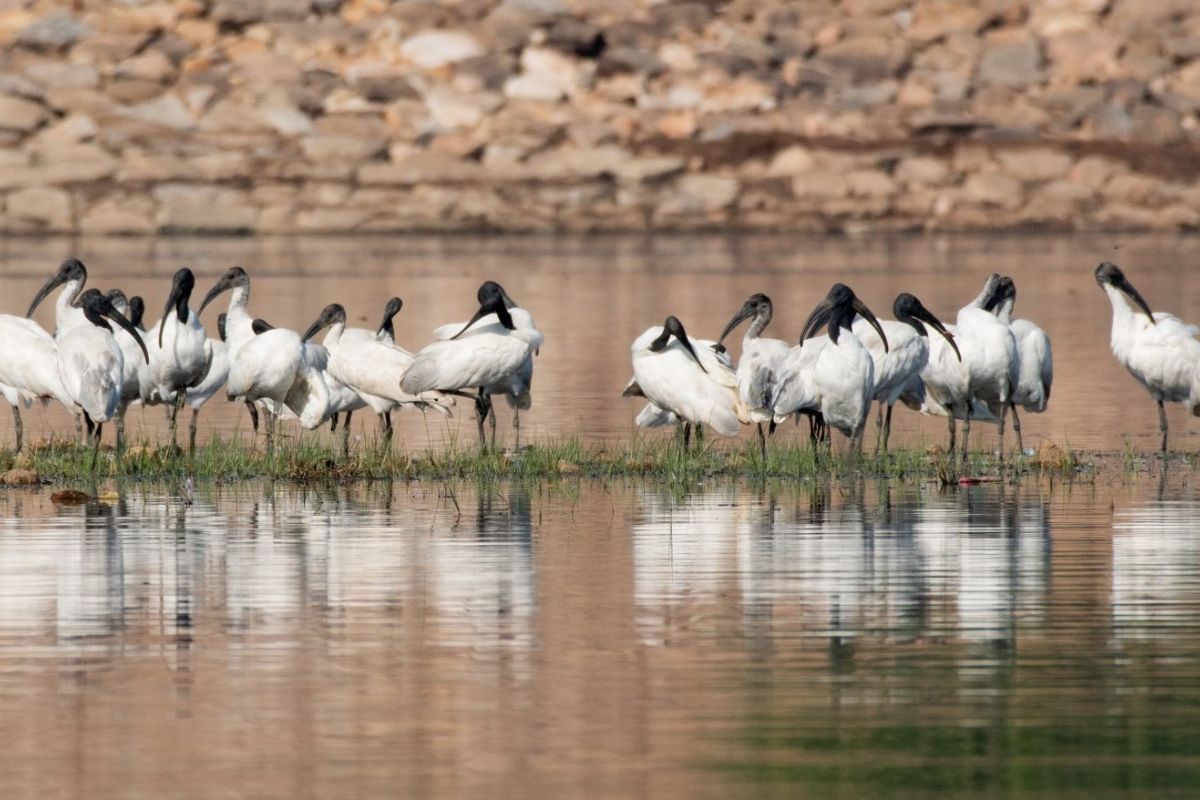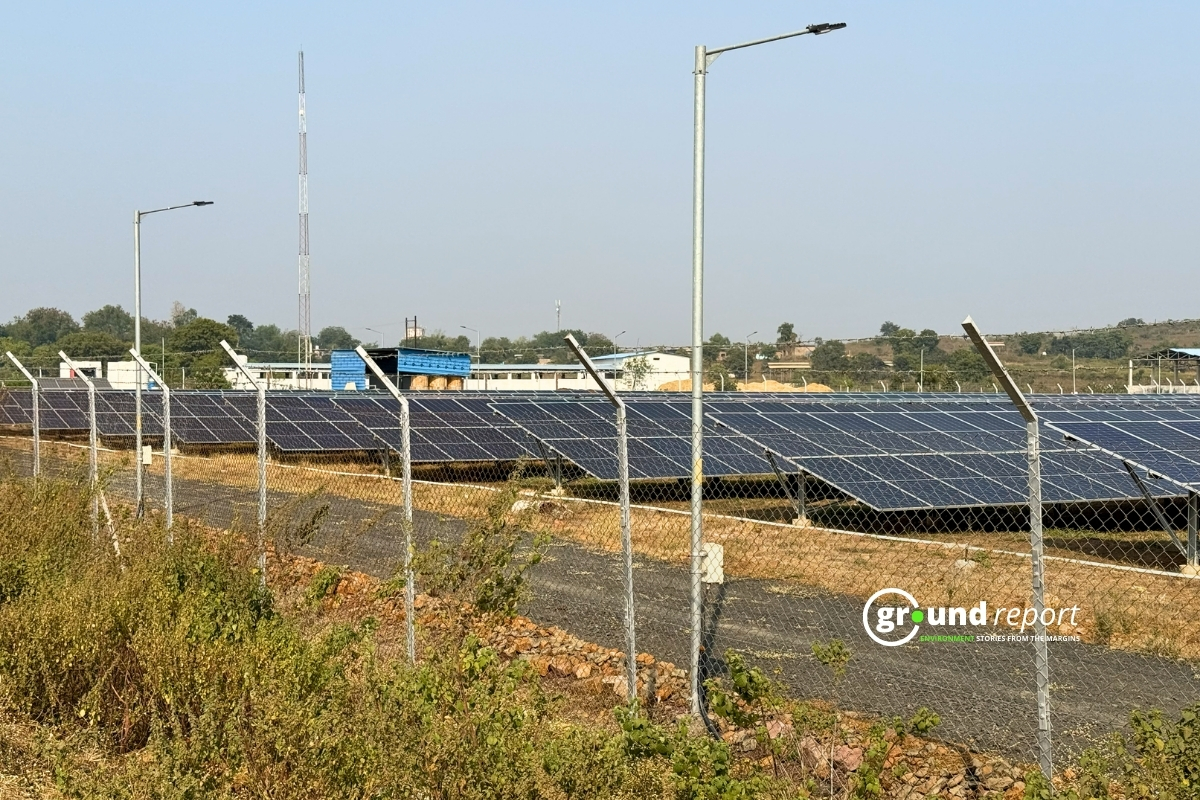The Nagi and Nakti Bird Sanctuaries, nestled in the Jhajha forest range in Bihar’s Jamui district, have been designated as Ramsar Sites. They join the prestigious list of wetlands of global importance, elevating India’s tally to 82 Ramsar Sites. This ranks India third alongside China, trailing the United Kingdom and Mexico.
The Ramsar Convention, an environmental treaty established in 1971, provides a framework for wetland conservation and sustainable utilization. India reaffirms its commitment to protecting these vital ecosystems that sustain biodiversity, regulate water cycles, and mitigate climate change by adding these two sanctuaries to the Ramsar list.
Two wetlands of Bihar added to Ramsar list
The Nagi Bird Sanctuary spans 791 hectares, emerging from the damming of the Nagi River. The waters formed clear pools and lush vegetation, creating a haven for migratory and resident birds. Recognized as an Important Bird and Biodiversity Area (IBA) by BirdLife International, it hosts over 75 bird species, including the bar-headed geese, congregating in one of the largest gatherings on the Indo-Gangetic plain.
During the winter months, from October to April, the sanctuary becomes a vibrant canvas of feathered visitors. Flocks of bar-headed geese, greylag geese, northern pintails, and red-crested pochards descend upon the sanctuary from far-flung regions such as the Himalayas, Europe, North Asia, and the Arctic Circle. Their arrival is an impressive sight, as the skies fill with the graceful movements of these winged travelers.
Nakti Bird Sanctuary: Jewel of the Jhajha Forest
Just a short distance away, the 333-hectare Nakti Bird Sanctuary stands as a testament to the region’s ecological richness. This wetland has evolved into a thriving habitat for over 150 species of birds, mammals, fish, aquatic plants, reptiles, and amphibians, originally developed for irrigation through the Nakti Dam. Notable residents include the endangered Indian elephant and the vulnerable native catfish, highlighting the sanctuary’s role in preserving biodiversity.
In 1984, the Nakti Bird Sanctuary was officially designated as a protected area due to its significance as a wintering ground for migratory species. Over 20,000 birds, including a large congregation of the red-crested pochard, visit during the winter months, attracting birders and nature enthusiasts eager to witness avian diversity.
These two sanctuaries are nestled in dry deciduous forests and surrounded by hills. They are critical stopover sites for migratory birds, providing respite and nourishment during their journeys. The wetlands act as reservoirs, supporting water demands and offering recreational opportunities for birdwatching and nature appreciation.
Recognizing Nagi and Nakti as Ramsar Sites is a testament to the collaborative efforts of local communities, conservationists, and government agencies in Bihar. They’ve ensured the preservation of these wetlands for future generations by raising awareness and promoting sustainable practices.
Full List of Ramsar sites in India
| Ramsar Sites in India | State – Location |
| Ankasamudra Bird Conservation Reserve | Karnataka |
| Aghanashini Estuary | Karnataka |
| Magadi Kere Conservation Reserve | Karnataka |
| Karaivetti Bird Sanctuary | Tamil Nadu |
| Longwood Shola Reserve Forest | Tamil Nadu |
| Karikili Bird Sanctuary | Tamil Nadu |
| Pallikaranai Marsh Reserve Forest | Tamil Nadu |
| Pichavaram Mangrove | Tamil Nadu |
| Sakhya Sagar | Madhya Pradesh |
| Pala Wetlands | Mizoram |
| Khijadia Wildlife Sanctuary | Gujarat |
| Bakhira Wildlife Sanctuary | Uttar Pradesh |
| Haiderpur Wetland | Uttar Pradesh |
| Sultanpur National Park | Haryana |
| Bhindawas Wildlife Sanctuary | Haryana |
| Thol Lake Wildlife Sanctuary | Gujarat |
| Wadhvana Wetland | Gujarat |
| Ashtamudi Wetland | Kerala |
| Beas Conservation Reserve | Punjab |
| Bhitarkanika Mangroves | Odisha |
| Bhoj Wetlands | Madhya Pradesh |
| Chandra Taal | Himachal Pradesh |
| Chilika Lake | Odisha |
| Deepor Beel | Assam |
| East Kolkata Wetlands | West Bengal |
| Harike Wetlands | Punjab |
| Hokera Wetland | Jammu & Kashmir |
| Kanjli Wetland | Punjab |
| Keoladeo National Park | Rajasthan |
| Keshopur-Miani Community Reserve | Punjab |
| Kolleru lake | Andhra Pradesh |
| Loktak lake | Manipur |
| Nalsarovar Bird sanctuary | Gujarat |
| Nandur Madhameshwar | Maharashtra |
| Nangal Wildlife Sanctuary | Punjab |
| Nawabganj Bird Sanctuary | Uttar Pradesh |
| Parvati Agra Bird Sanctuary | Uttar Pradesh |
| Point Calimere Wildlife and Bird Sanctuary | Tamil Nadu |
| Pong Dam lake | Himachal Pradesh |
| Renuka lake | Himachal Pradesh |
| Ropar Wetland | Punjab |
| Rudrasagar Lake | Tripura |
| Saman Bird Sanctuary | Uttar Pradesh |
| Samaspur Bird Sanctuary | Uttar Pradesh |
| Sambhar lake | Rajasthan |
| Sandi Bird Sanctuary | Uttar Pradesh |
| Sarsai Nawar Jheel | Uttar Pradesh |
| Sasthamkotta lake | Kerala |
| Surinsar- Mansar lakes | Jammu & Kashmir |
| Tsomoriri Lake | Ladakh |
| Upper Ganga river | Uttar Pradesh |
| Vembanad Kol Wetland | Kerala |
| Wular lake | Jammu & Kashmir |
| Sunderban Wetland | West Bengal |
| Asan Barrage | Uttarakhand |
| Kanwar Lake or Kabal Taal | Bihar |
| Lonar Lake | Maharashtra |
| Sur Sarovar | Uttar Pradesh |
| Tso Kar Wetland Complex | Ladakh |
| Nanda Lake | Goa |
| Khijadiya Bird Sanctuary | Gujarat |
| Hokersar Wetland | Jammu & Kashmir |
| Hygam Wetland Conservation Reserve | Jammu & Kashmir |
| Shallbugh Wetland Conservation Reserve | Jammu & Kashmir |
| Surinsar-Mansar Lakes | Jammu & Kashmir |
| Ranganathittu Bird Sanctuary | Karnataka |
| Sirpur Lake | Madhya Pradesh |
| Yashwant Sagar | Madhya Pradesh |
| Thane Creek | Maharashtra |
| Ansupa Lake | Odisha |
| Hirakud Reservoir | Odisha |
| Satkosia Gorge | Odisha |
| Chitrangudi Bird Sanctuary | Tamil Nadu |
| Gulf of Mannar Marine Biosphere Reserve | Tamil Nadu |
| Kanjirankulam Bird Sanctuary | Tamil Nadu |
| Koonthankulam Bird Sanctuary | Tamil Nadu |
| Pallikarnai Marsh Reserve Forest | Tamil Nadu |
| Suchindram Theroor Wetland Complex | Tamil Nadu |
| Udhayamarthandapuram Bird Sanctuary | Tamil Nadu |
| Vadavur Bird Sanctuary | Tamil Nadu |
| Vedanthangal Bird Sanctuary | Tamil Nadu |
| Vellode Bird Sanctuary | Tamil Nadu |
| Vembannur Wetland Complex | Tamil Nadu |
| Vellode Bird Sanctuary | Tamil Nadu |
| Parvati Arga Bird Sanctuary | Uttar Pradesh |
| Sundarban Wetland | West Bengal |
| Nagi Bird Sanctuary | Bihar |
| Nakti Bird Sanctuary | Bihar |
Victory for conservation efforts in India
Arvind Mishra, a Bihar-based bird expert and member of the Governing Council of the Bombay Natural History Society (BNHS), expressed his joy at the news. He stated, “I am overjoyed with the announcement of designating Nagi Bird Sanctuary and Nakti Bird Sanctuary as the new 81st and 82nd Ramsar Sites in India. I am thankful to the top officials of the Bihar Forest, Environment and Climate Change Department for this recognition.”
Mishra highlighted the sanctuaries’ significance. He noted that they attract hundreds of migratory birds during the winter, including critically endangered species. “Two years ago, the department finalized proposals for five wetlands in the state to be sent to the Union Ministry of Environment, Forest and Climate Change (MoEFCC) for Ramsar Sites designation,” he added.
As these sanctuaries gain global recognition, there is a growing need to balance sustainable tourism and preserving delicate ecosystems. Efforts to develop eco-friendly infrastructure, educational programs, and awareness campaigns are underway to ensure visitors appreciate the natural wonders without harming the habitats.
Designating Nagi and Nakti as Ramsar Sites is a victory for conservation efforts in India. It highlights the country’s commitment to preserving its natural heritage and the essential role wetlands play in sustaining life. As these winged jewels grace Bihar’s skies, their protection becomes a shared responsibility, ensuring future generations witness the spectacle of migratory birds.
Keep Reading
Part 1: Cloudburst in Ganderbal’s Padabal village & unfulfilled promises
India braces for intense 2024 monsoon amid recent deadly weather trends
Support us to keep independent environmental journalism alive in India.
Follow Ground Report on X, Instagram and Facebook for environmental and underreported stories from the margins. Give us feedback on our email id greport2018@gmail.com.
Don’t forget to Subscribe to our weekly newsletter, Join our community on WhatsApp, and Follow our YouTube Channel for video stories.









